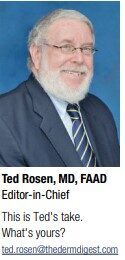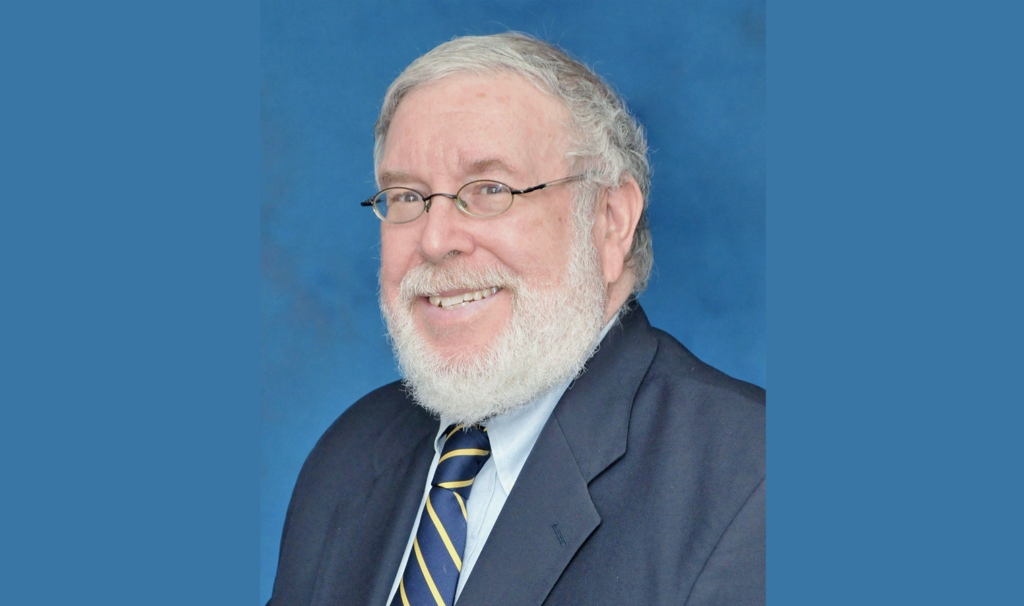“Getting information from the internet is like taking a drink of water from a fire hydrant.”
—Mitchell Kapor (Founder of Lotus Software)

It had been a long day, and I was tired and hungry. The last patient was a first follow-up visit after a prior diagnosis of rosacea. I was reasonably certain that this encounter would be uncomplicated and relatively short. However, the patient quickly informed me that she had obtained neither the subantimicrobial dose doxycycline nor the topical metronidazole I had prescribed. Instead, she was ingesting burdock root and drinking “pitchers” of chamomile tea in order to control her affliction. When I inquired why she chose this regimen, she unabashedly replied, “ I found it on the internet.” I would be surprised if some variation of this story hasn’t happened to you, too!
To be perfectly frank, I haven’t decided if the internet is a friend or a foe. At least in my practice, patient activism in seeking medical knowledge from the web has become nearly ubiquitous. Such behavior has irrevocably disrupted the traditional doctor-patient relationship in a fundamental manner. Namely, the typical health information imbalance has clearly shifted. As patients increasingly access the web, any semblance of exclusivity for health information by providers has eroded like the sand on a beach after a hurricane. Your patients can and sometimes do become overnight “experts” on the pertinent subject matter. Interestingly, study after published study indicates that this phenomenon is not primarily driven by distrust of medical professionals. Rather, the patients view this as a beneficial tool. As better-informed individuals, they can speak more confidently with their healthcare professional about their condition and potential treatments. By obtaining a modicum of shared control over each encounter, patients can enter into a comprehensive give and take discussion. Thus, patients become more actively involved in all aspects of shared decision-making regarding their health issues. They can prepare for each visit, ask better and more pointed questions, express concerns more coherently and appropriately, and understand what their physicians are telling them. Even when the information obtained from the web mimics precisely what the physician presents, patients can often use web-based sources that cut through the medical jargon we frequently use. In summary, acquisition of health information from the internet may empower patients toward more effective communication with their healthcare personnel.

Let me reiterate and emphasize this point. By seeking information from the internet, the vast majority of patients do not intend to alter their role related to healthcare. They still value and appreciate their physician and respect his or her opinion and experience. Rather, most patients view the web as an additional resource to support and enhance their existing relationship with the physician and other members of the healthcare team. In fact, a number of published surveys uniformly indicate that patients believe that seeking health information from the internet does not (and should not) adversely affect their patient-physician interactions. In fact, these same surveys indicate that patients expect that members of the healthcare team should be welcoming toward the results of patient-conducted internet research. When patients directly disclose their online findings or bring printouts of online information, more often than not, they both anticipate and desire the physician’s critical appraisal. Moreover, patients generally make a conscious effort to use information gleaned from the web in an inoffensive manner.
So, considering everything already discussed above, what could possibly go wrong? Surprising to me, a 2021 study of a multiethnic community in South Florida disclosed that computer ownership at or above age 60 was only 60%. Overall internet use in this same group was only 49%, a proportion that dropped to a scant 38% when respondents were queried about utilizing the web specifically to obtain medical information. Aside from age, there was also an ethnic disparity. Black, Afro-Caribbean, and Hispanic patients used the internet to acquire health-related information less frequently than did Caucasians. In short, some elderly and minority patients may be internet disenfranchised.1
Some patients actually conceal both their internet search and the resulting information so obtained. The most common reason for this behavior is skepticism about how physicians might react; patients are concerned that their providers might feel insulted or even challenged. Patients further feel that physicians might respond in a manner that explicitly or implicitly discredits them. In addition and by contrast, some patients actually do use internet-derived information as a means of being deliberately confrontational. Such patients tend to repeat this pattern at some or all subsequent visits. Conflicts resulting from differing interpretations of the meaning—or even the basic veracity—of online health information can lead to intensive and extraordinarily time-consuming discussions. In the end, some patients end up valuing the online health information more than the information delivered by their physician, leading to the patient partially or completely ignoring the provider’s expertise. Needless to say, this defeats the entire purpose of seeking medical care.
Finally, not everything one encounters online is reliable. Some internet postings consist of biased half-truths or even outright lies. Many online sites consist of unsubstantiated opinions rather than data-driven conclusions and recommendations. Some websites and postings are—to put it simply—foolish nonsense. How many of our patients have sufficient medical background or scientific training to tell the difference between what is reasonable and rational and what is just plain ridiculous? Dealing with the latter can become a truly frustrating difficulty for the physician. Being dismissive can only damage the therapeutic relationship between physician and patient. Medical paternalism leads to patients who are dissatisfied with their care and who are even more likely to follow the advice they, themselves, hunted down online. Of course, this sequence of events can lead to a lack of treatment success or, even worse, actual harm. Of some note, if an excellent, long-standing doctor-patient relationship already exists, patients judged the provider’s reaction as being positive, even when the physician’s comments are openly critical of internet-acquired information.
After giving it some thought, I think the key thing is to remain receptive and non-judgmental when a patient brings web-based information into the medical visit setting. Resistance to even discussing such information will certainly lead to patient anxiety and confusion. When internet-acquired information is clearly misleading, erroneous, or dangerous, a thorough explanation of why that is so can only help reinforce the therapeutic alliance between provider and patient. The worldwide web isn’t going away any time soon, and physicians must develop adequate ways to deal with patients who seek and consider internet-acquired knowledge.
You know, that was a tough editorial to write! I think I’ll go have a snack of boiled burdock root and chamomile tea!



